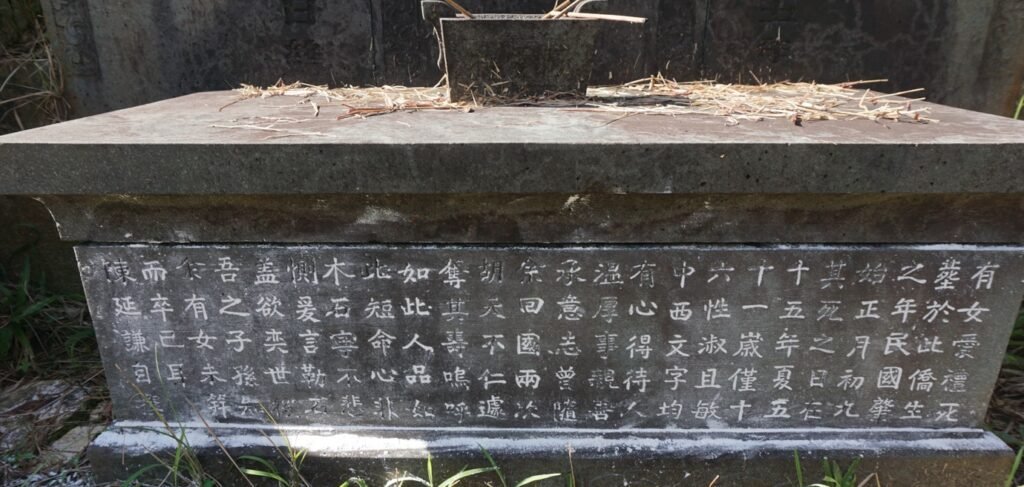10 TAN AI LAY 陳愛禮
A Father’s Lament
TAN AI LAY (陳愛禮) 1912 – 1926 Place of Ancestry: Tung Ann (同安)
I had a daughter named Ai Lay who has died and buried here.
有女爱禮死
Born as an overseas Chinese
塟於此僑生
In the first year of the Republic of China,
之年民國肇
On the ninth day of the first month.
始正月初九
The day of her death was in
其死之日在
The fifteenth year, summer, fifth month,
十五年夏五
Eleventh day, at the age of only sixteen.
十一歲僅十六
Her nature was kind and sensitive.
性淑且敏
She had a good understanding of both Chinese and Western literature.
中西文字均有心得
She treated people warmly, and served her parents with filial devotion.
待人温厚事親善承意志
She had accompanied me back to our country twice.
曾隨余回國兩次
Why is heaven so unkind, to take her life so soon?
胡天不仁遽 奪其壽鳴籲
A person of such character, such a short life,
如此人品如 此短命
My heart is not made of stone, how can I not feel sorrow?
心非木石寧不悲
Therefore, I inscribe these words on stone
惻爰言勒石
So that future generations, my descendants, will know,
盖欲奕世後 吾之子孫知
I had a daughter who died before she could even wear her hair in a bun.
余有女未筓 而卒巳耳
Written by Tan Ean Kiam 陳延謙自撰
Translated by Raymond Goh
The term “未筓” refers to a girl who has not yet reached the age of 15, when she would traditionally wear her hair in a bun, symbolizing her coming of age.
Both Tan Kah Kee and Tan Ean Kiam gave their daughters the name 爱禮
爱 (Ai) means “love” ; 禮 (Li) means “courtesy” or “propriety”
Together, the name 爱禮 means “love of propriety” or “love of etiquette/courtesy.” This name reflects traditional Chinese values stressing the importance of proper conduct in life. It was likely chosen to express hope that their daughters would embody these virtuous qualities.

The inscriptions on Tan Ai Lay’s tomb composed by her father, Tan Ean Kiam. (photo credit : Peter Pak)
by Raymond Goh and Catherine Lim

Recent Comments